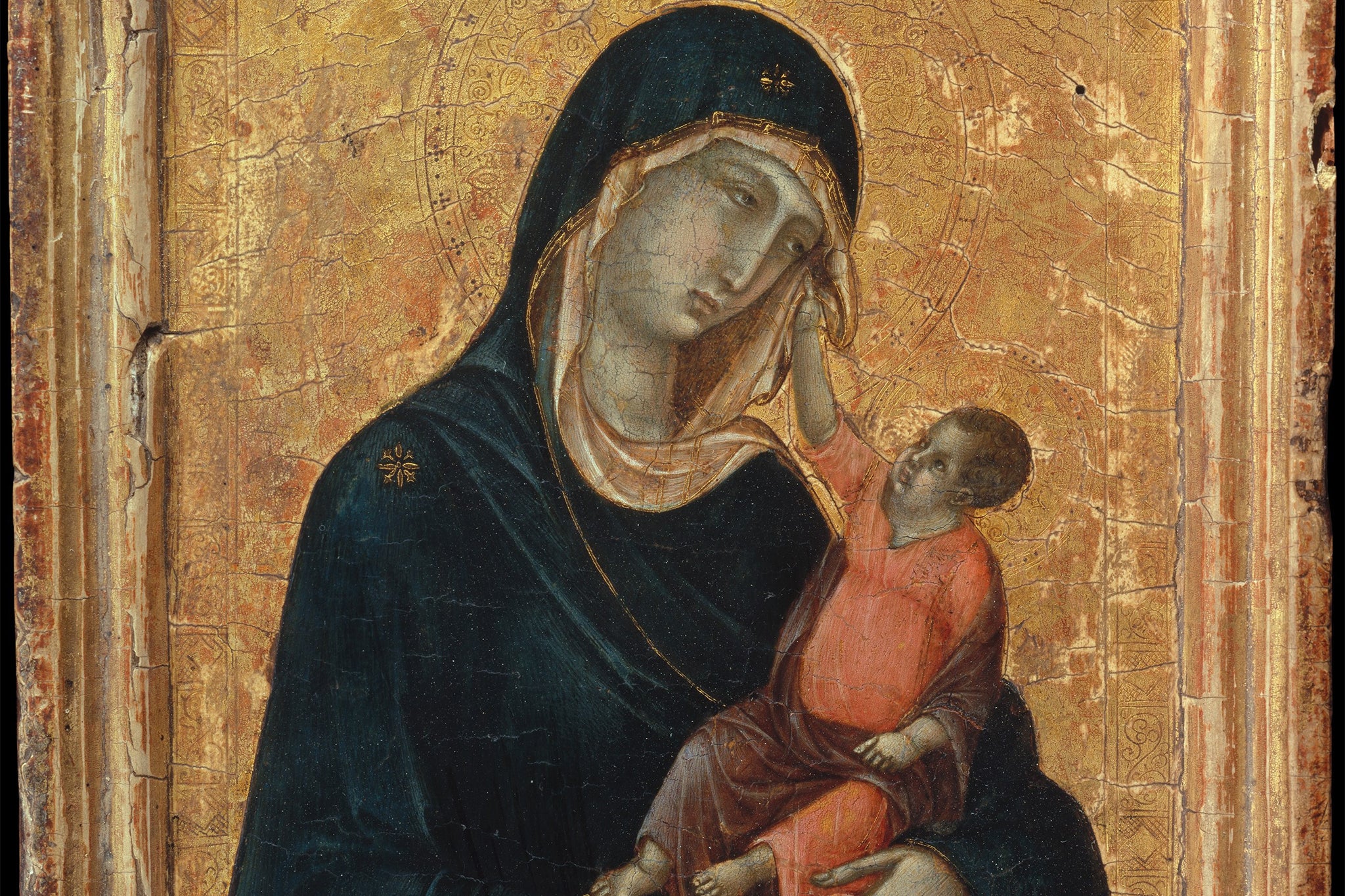Mea Culpa: nothing wrong with an icon in its place
Our resident pedant John Rentoul absolves some Independent writers of crimes against the language


Just to prove that this column can be positive as well as negative, let me celebrate our low icon count. Very few things were described as “iconic” in The Independent over the past seven days. And the only “icon” was an actual icon, in a review of an exhibition of 14th-century Tuscan art. “The show opens with a Byzantine icon,” we wrote, “the kind of hyper-stylised Greek Orthodox religious painting that formed the principal model for Italian painting well into the Middle Ages.”
There is something satisfying about a common metaphor restored to its rightful and original meaning.
Saints set sail: Continuing on a positive note, that review used the phrase “by and large”. It said: “By and large, images of saints on gold backgrounds aren’t the most popular with the general public.” This is the way the phrase is used today, as simply another way of saying “generally”.
But we are enriched, I think, to know where it comes from. In the days of sailing ships it meant “adaptable”. A ship that could sail “by and large” was one that could handle sailing “by the wind” (into the wind) as well as “at large” (with the wind at its back).
One of the joys of language is the number of idioms that come from pre-modern modes of transport: horse riding and sailing.
To write is to choose: Still failing to find fault with our usage, I have rejected a reader’s objection to a sentence in an article on Tuesday. We wrote that “businesses have two choices when faced with increased costs: they can absorb them, or they can pass on the increase to the end consumer”.
Our correspondent said that this is one choice, and so, pedantically, it is. But I think it is permissible to use “choice” to mean “option” – that is how most people choose to use the language.
Possessive places: On, then, to instances in which our writing could have been improved. Also on Tuesday, we reported “one killed and four wounded in stabbing attack in Israel’s Haifa”. This is a journalistic device that is never not irritating, such as “London’s West End” or “Bristol’s Clifton suspension bridge”. I think “Haifa, Israel” would be better. Thanks to Mick O’Hare for sounding the klaxon.
Americanism 1: Last weekend, we carried a news report with the headline: “Reeves loans £2bn in frozen Russian assets to fund weapons in Ukraine.” In British English the conventional form is “lends”. As a small act of resistance against Donald Trump, we should avoid this American usage.
Americanism 2: In a report of the appeal against his prison sentence by Mike Amesbury, the MP who punched a constituent, we wrote that Mr Fellows, the victim, “fell back and nearly hit his head on the curb”. Thanks to Roger Thetford for reminding us that the usual British spelling for the edge of a pavement is “kerb”. We reserve “curb” for the verb meaning hold something in, although it is the same word.
However, we were wrong in any case, as Mr Fellows fell into the road, away from the kerb, as can be seen in the CCTV video accompanying the report. We changed it to “stone surface”.
Only the lonely: We described a portrait of the nine-day queen as “one of the only paintings of Lady Jane Grey from her lifetime”. Usually, “one of the only” is misused when “one of the few” is meant, as Paul Edwards pointed out; but here we actually meant “only”. The subject of the painting is disputed, but if it is of her, it would be the only known image of her from her lifetime.
Join our commenting forum
Join thought-provoking conversations, follow other Independent readers and see their replies
Comments